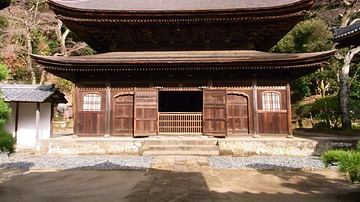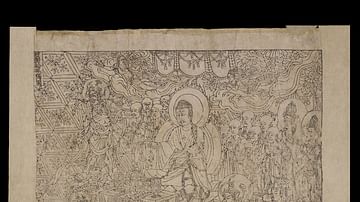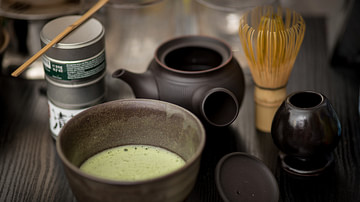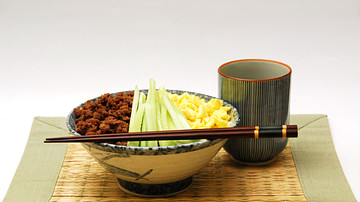Search
Search Results

Video
Buddhism, Taoism and Confucianism in China
This video describes the three ancient faiths common to China: Buddhism, Taoism and Confucianism.

Video
Buddhism and Jainism - Part 2 Jainism
Welcome back to the 7th lesson in Indian history in which you will see about Jainism indian history/ jainism lecture for upsc, which we hope is usefull for your jainism and buddhism upsc exams, Certain questions have been asked about buddhism...

Definition
Muromachi Period
The Muromachi Period (Muromachi Jidai, 1333-1573 CE) refers to the period of Japanese medieval history when the Ashikaga shogun capital was located in the Muromachi area of Heiankyo (Kyoto). Replacing the Kamakura Shogunate (1192-1333 CE...

Definition
Kamakura
Kamakura is a coastal town located on Sagami Bay on Honshu Island, Japan, which was the capital of the Kamakura Shogunate from 1192 to 1333 CE. Provided with excellent natural defensive features, it was fortified and made the base of the...

Definition
Four Noble Truths
The Four Noble Truths are the foundational tenets of Buddhism, which spark awareness of suffering as the nature of existence, its cause, and how to live without it. The truths are understood as the realization which led to the enlightenment...

Definition
Sutra
A sutra (Sanskrit for “thread”) is a written work in the belief systems of Hinduism, Jainism, and Buddhism which is understood to accurately preserve important teachings of the respective faiths and guide an adherent on the path from ignorance...

Definition
Japanese Tea Ceremony
The Japanese Tea Ceremony (chanoyu or chado) is a cultural tradition involving very particular places, procedures, and equipment for drinking green tea. Originating as a habit of Chinese Buddhist monks to aid their meditation, tea-drinking...

Article
Religion in Ancient China
Religious practices in ancient China go back over 7,000 years. Long before the philosophical and spiritual teachings of Confucius and Lao-Tzu developed or before the teachings of the Buddha came to China, the people worshipped personifications...

Article
Food & Agriculture in Ancient Japan
The diet of ancient Japan was heavily influenced by its geography as an archipelago, foodstuffs and eating habits imported from mainland Asia, religious beliefs, and an appreciation for the aesthetic appearance of dishes, not just the taste...

Definition
Kamakura Period
The Kamakura Period or Kamakura Jidai (1185-1333 CE) of medieval Japan began when Minamoto no Yoritomo (1147-1199 CE) defeated the Taira clan at the Battle of Dannoura in 1185 CE. The period is named after Kamakura, a coastal town 48 kilometres...